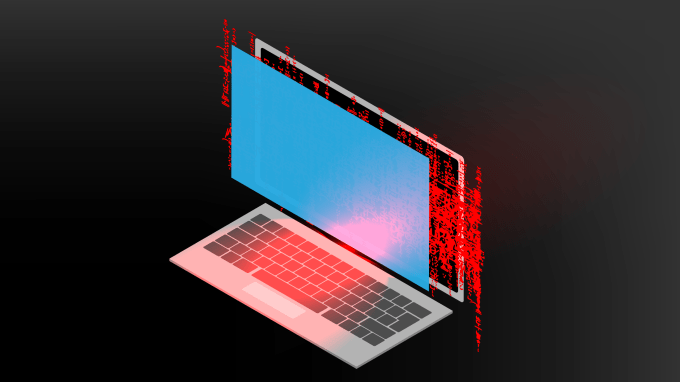Boeing has reportedly been struck in a major way by Wannacry, the ransomware that spread like wildfire last year. The Seattle Times obtained a memo from Mike VanderWel, of the company’s commercial airliner division, describing the malware as “metastasizing rapidly.”
View More Boeing reportedly hit by Wannacry ransomwareCategory: malware
Cryptojacking is becoming a real menace
/https%3A%2F%2Fblueprint-api-production.s3.amazonaws.com%2Fuploads%2Fcard%2Fimage%2F739193%2Fa5ddd215-d57d-4ead-b926-1c67316872c4.jpg)
Cryptojacking — the malicious practice of hijacking one’s computer resources to mine cryptocurrencies — has taken off in a big way near the end of last year.
According to a report by Symantec, published on Wednesday, cryptojacking has surged by 8,500% last year, especially since September — which is roughly the time when the price of Bitcoin and Ethereum really hit the stratosphere.
Besides being lucrative, cryptojacking is generally simpler to do than installing malware on someone’s computer, and it often goes unnoticed by the victim. Read more…
More about Bitcoin, Malware, Ransomware, Mining, and Cryptocurrency
View More Cryptojacking is becoming a real menaceAndroid has gotten a lot safer in 2017, according to Google
We keep hearing about new, increasingly more dangerous strains of Android malware, but how safe from abuse and malware is Google’s mobile operating system, really?
If you ask Google, it’s improved by leaps and bounds in that regard last year, p…
How a sketchy cryptocurrency-mining app got into the Mac App Store
/https%3A%2F%2Fblueprint-api-production.s3.amazonaws.com%2Fuploads%2Fcard%2Fimage%2F732654%2F25373a25-a38a-4897-bad6-010fc4f3604e.jpg)
Is it malware if it tells you exactly what it’s going to do and then does that very thing?
That’s essentially the question facing Apple after reports broke that a program available in the Mac App Store was mining cryptocurrency on users’ computers. Although initially approved by Apple, the Calendar 2 program was pulled — either by its developer Qbix or the folks in Cupertino — on March 12.
SEE ALSO: Bitcoin is a victim of its own success
Mac security site Objective-See did a deep dive into the matter after being tipped off by Ars Technica’s Dan Goodin, pointing out that the app was mining Monero — a cryptocurrency loved by the seedier side of the internet for its relative anonymity. Read more…
More about Apple, Malware, Cryptocurrency, Monero, and Tech
View More How a sketchy cryptocurrency-mining app got into the Mac App StoreUK accuses Russia of 2017’s NotPetya ransomware attacks
 The UK government has directly accused Russia of being behind the so called NotPetya ransomware attack last year — which quickly spread around the globe, including affecting businesses in Spain, France and India, demanding payment in Bitcoin to unlock infected machines. Read More
The UK government has directly accused Russia of being behind the so called NotPetya ransomware attack last year — which quickly spread around the globe, including affecting businesses in Spain, France and India, demanding payment in Bitcoin to unlock infected machines. Read More
Salon’s new business plan is running cryptocurrency-mining malware on your computer
It’s hard out there for a publisher. But what if, ya know, the blockchain could fix it?
That appears to be the thinking of digital media brand Salon, which today launched a new way to generate revenue off its readers. No, not some fancy subscription …
Cryptojacking attack hits ~4,000 websites, including UK’s data watchdog
 An attacker injected a crypto mining script into a web plugin’s JavaScript library, and some 4,000 websites — a large number of them taxpayer funded — were co-opted into illegal crypto mining… oopsie… Read More
An attacker injected a crypto mining script into a web plugin’s JavaScript library, and some 4,000 websites — a large number of them taxpayer funded — were co-opted into illegal crypto mining… oopsie… Read More
Google says it removed 700K apps from the Play Store in 2017, up 70% from 2016
 The relatively open nature of Android has made it a target for malware authors and other bad actors of all stripes who often try to get their wares onto your phone through both the official Google Play Store, third-party app stores and any other way they can think of. For most users, though, the main Android app store is Google’s own Play Store and as the company announced today, the… Read More
The relatively open nature of Android has made it a target for malware authors and other bad actors of all stripes who often try to get their wares onto your phone through both the official Google Play Store, third-party app stores and any other way they can think of. For most users, though, the main Android app store is Google’s own Play Store and as the company announced today, the… Read More
Spyware creator arrested for allegedly creeping on thousands for 13 years
/https%3A%2F%2Fblueprint-api-production.s3.amazonaws.com%2Fuploads%2Fcard%2Fimage%2F691583%2F3e082a25-3efd-42c8-ba02-317a9a6a0669.jpg)
The culprit behind the creepy spyware Fruitfly was nabbed finally — after 13 years.
A 28-year-old Ohio man was accused Wednesday of running the malware attack on thousands of computers, according to the U.S. Department of Justice (DOJ).
Phillip Durachinsky was indicted on 16 counts for wiretapping, identity theft, producing child pornography, and other computer fraud violations.
Fruitfly — as the malware was named — was installed on thousands of computers from 2003 through January 2017. Durachinsky had access to personal computers along with devices at companies, schools, a police department, and a subsidiary of the U.S. Department of Energy. Yes, he allegedly was spying on the government, according to the DOJ. Read more…
More about Malware, Department Of Justice, Spyware, Fruitfly, and Tech
View More Spyware creator arrested for allegedly creeping on thousands for 13 yearsThis nasty Android malware caused a phone to overload and bulge
Cybersecurity researchers at the Kaspersky Lab intentionally infected an Android phone with a new species of nefarious malware. Two days later, the overtaxed phone battery had bulged and actually warped the phone.
The researchers call this malw…
Menlo Security secures $40 million Series C to keep malware at bay
Menlo Security, a startup with a unique approach to protecting your company from malware and phishing attacks, announced a $40 million Series C round today. Menlo protects customers by never lets letting employees access an actual website or emai…
View More Menlo Security secures $40 million Series C to keep malware at bayU.S. government issues alerts about malware and IP addresses linked to North Korean cyber attacks
 US-CERT, the Department of Homeland Security team responsible for analyzing cybersecurity threats, has posted a warning about cyber attacks by the North Korean government, which it collectively refers to as “Hidden Cobra.” The technical alert from the FBI and Department of Homeland Security says a remote administration tool (RAT) called FALLCHILL has been deployed by Hidden Cobra… Read More
US-CERT, the Department of Homeland Security team responsible for analyzing cybersecurity threats, has posted a warning about cyber attacks by the North Korean government, which it collectively refers to as “Hidden Cobra.” The technical alert from the FBI and Department of Homeland Security says a remote administration tool (RAT) called FALLCHILL has been deployed by Hidden Cobra… Read More

